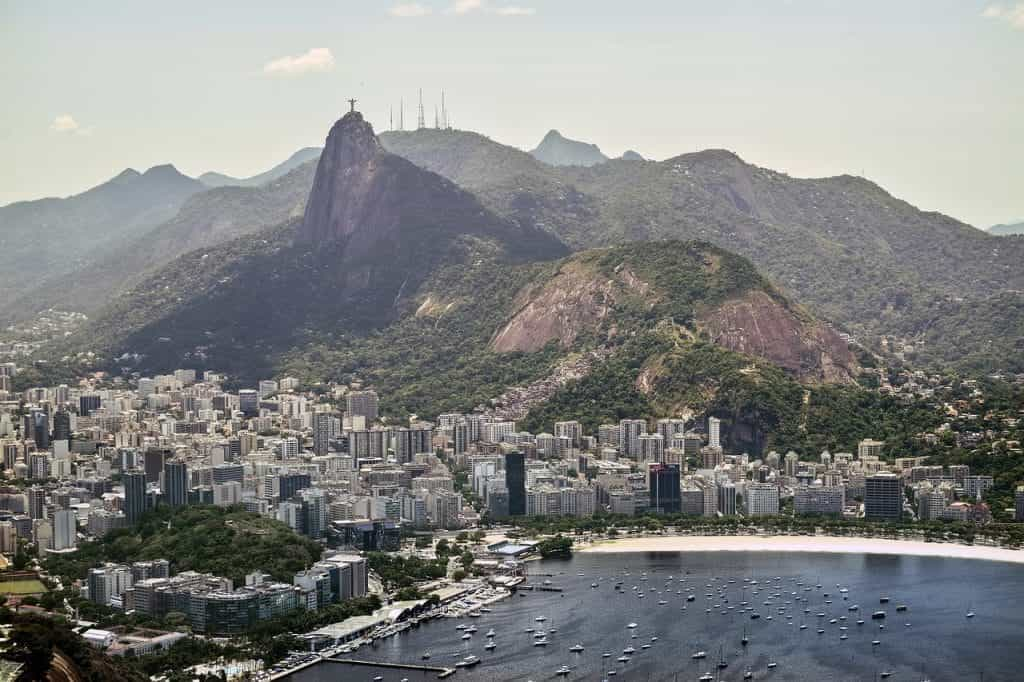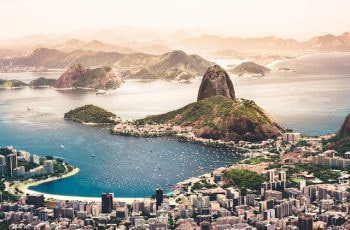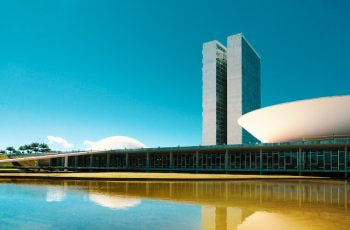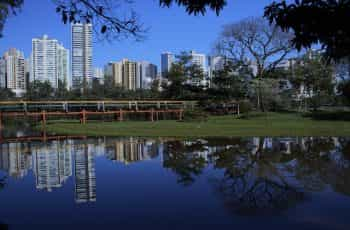Legal Casinos in Brazil Depend on This One Thing
Brazil President Jair Bolsonaro has been courting the evangelical vote in anticipation of expanding legal gaming in the country. Their support, which helped Bolsonaro secure his 2018 Presidential victory, is essential for legalizing a national gaming industry.

Rio lawmakers, including Evangelical Mayor Marcelo Crivella, hope that legalized casinos on the waterfront would bring a much-needed boost to their economy. ©LhcCoutinho/Pixabay
The Potential for Brazil’s Gaming Market Has Been Widely Noted
Many in the international gaming industry have remarked upon the promise that could be monetized by greater expansion of a legal casino market in Brazil. One such recent commentator was Pansy Ho, a Macau-based billionaire and current owner of MGM Macau.
Another major market magnate with their eyes on Brazil was Las Vegas Sands CEO and chairman Sheldon Adelson, who has made no secret of his interest in establishing Brazil locations — particularly in São Paolo and Rio de Janeiro — for several years now.
Adelson reportedly went so far as to meet with then-President Michel Temer in 2018 to attempt to convince the political leader to overturn Brazil’s longstanding gambling ban, in effect since the 1940s. At that time, Adelson was reportedly encouraging President Temer to consider an $8 billion resort-casino, which got many talking about the prospect of greater leniency in Brazil’s gaming laws.
Even more, a panel at this past summer’s Brazilian Gaming Congress (BgC) in São Paolo, comprised of Hard Rock International’s Alex Pariente and Entertainment Inc.’s John Maddox (also VP of government relations at Caesars), devoted time to discussing the potential of the gaming industry in Brazil. On the topic, Maddox revealed Caesars is “clearly interested in this jurisdiction”.
In addition to eyes from foreign companies, locals in the Brazil government have also made clear their interest in expanding the gaming industry. At the same conference where Ms. Ho stated the promise of Brazil’s gaming market, Brazil’s Minister for Tourism, Marcelo Álvaro António wanted to make sure that no one missed Brazil’s own interest in gaming market expansion, saying:
“I want to remind you that the legislative [power] in Brazil is considering regulating the operation of casinos in [resorts]…, opening major avenues of investment.”
Similarly, Rio de Janeiro Mayor Marcelo Crivella has also pushed for greater legalizationof gambling in his city. The fact that he is a licensed Bishop of the Universal Church of the Kingdom of God could prove helpful in Bolsonaro’s courtship of the religious vote.
Preparing for the possibility of legal gaming, the Municipal Urban Planning Office of Rio has prepared a pitch designed to attract international operators to build integrated casino-resorts on Rio’s famous waterfront. Officials hope this could mean new life is brought into an area in need of a renaissance.
Finally, Bruno Omori, who works with the Brazilian Association for the Hospitality Industry, also has gone on the record as advocating for more integrated resort-casinos in Brazil, saying, “Brazil offers the most potential for gambling growth in the world.”.
Why The Interest in Brazil?
Brazil is the largest economy in Latin America, with the sixth-largest population of any country in the world.
Beyond what it could offer international operators, growing the gaming industry could be a huge boon to Brazil’s economy, which has struggled to stand on steady footing in the last years.
Initially Opposed, President Bolsonaro Has Softened On the Concept
While on the campaign trail in 2018, President Bolsonaro — known to some as the “Trump of the Tropics,” — vocally opposed gambling throughout his campaign. In President Bolsonaro’s first year in office, the incumbent President emphasized his commitment to “family values.”
However, something must have changed his mind. In April of this year, Bolsonaro said via Facebook live that the question of gambling’s legality lies in the hands of Brazil’s Chamber of Deputies and Senate. Bolsonaro maintains that he personally is opposed to gambling, but, like certain gambling-related regulations in the US, the gaming laws in Brazil should be decided on a state-by-state basis.
In 2018, Brazil did make steps forward in gaming licensing, legalizing sports betting nationwide. As in many Latin American nations, however, the particular regulations for this form of gaming (both virtual and real) remain under discussion.
Still, something significant lies in President Bolsonaro’s way from legalizing gambling in Brazil the way many operators are hoping: the President is very opposed to slot machines, which he sees as being a threat to families. Unfortunately for operators, slot machines tend to be the largest money-maker of casinos.
This will not be the first time politicians in Brazil have pushed to legalize gambling in the last year, though this is the most promising attempt yet.
A Major Negotiation: Winning the Evangelical Vote
In order to make headway with greater gaming leniency, President Bolsonaro must court the votes of Brazil’s bancada evangelica (“Evangelical Bench,” in English), who occupy 200 of Brazilian Congress’s 513 seats.
According to reports, the bancada evangelica played a significant role in Bolsonaro’s 2018 election, making his appeal to them vital for the pro-gaming cause.
Some evangelical leaders, like Marco Feliciano, are outspoken in their opposition to gambling. This past October, Feliciano described the evangelical voting coalition as “totally” against casino licensing, going so far as to say there would be no possibility of persuasion.
Another Factor: The Question of Locals vs. Tourists
Another significant question which has arisen in recent weeks is whether or not legal casinos could allow local citizens to visit their establishments. Mayor of Rio de Janeiro Marcelo Crivella, who is also an evangelical bishop, wants his city to have a casino, but one that only tourists should be allowed to go to.



